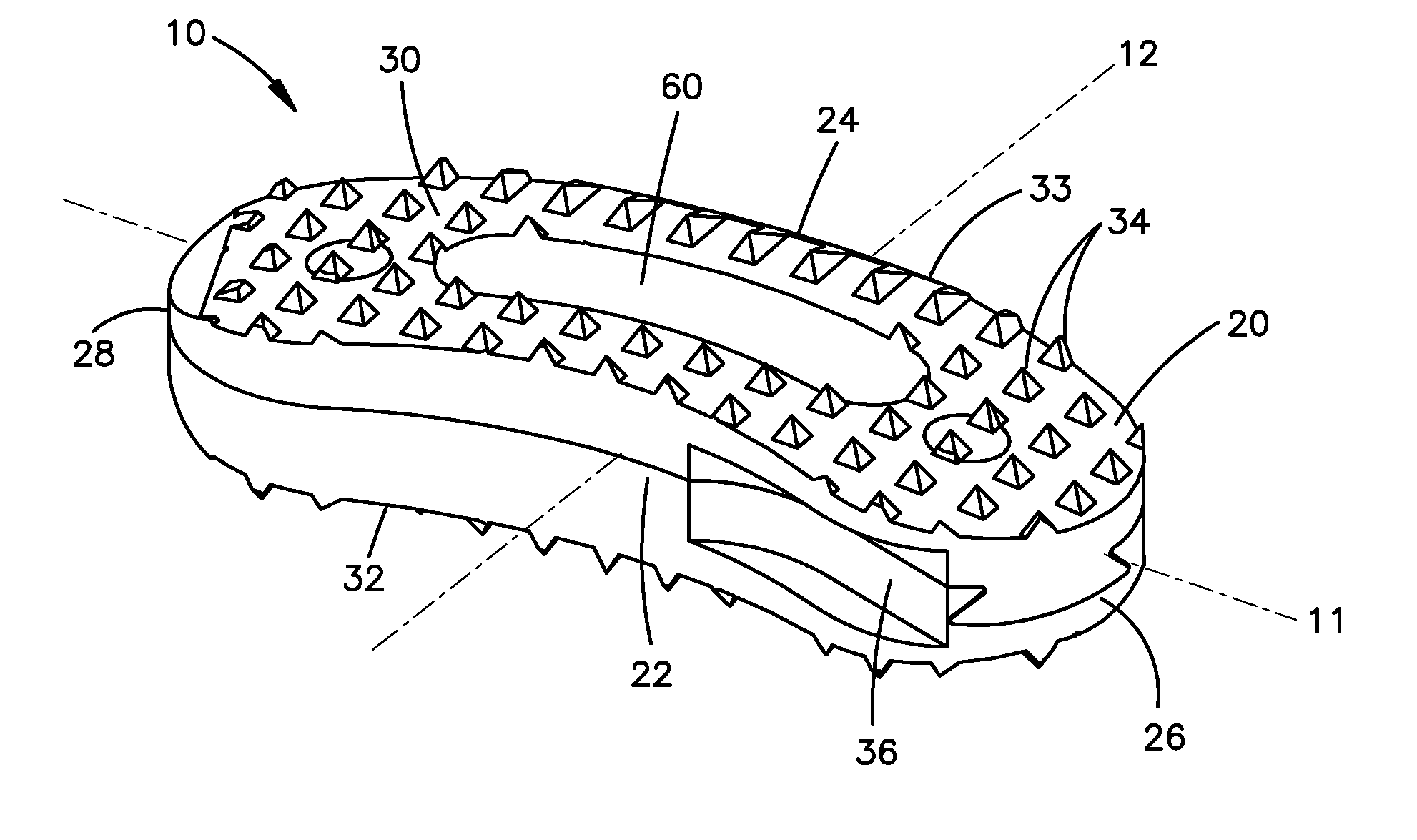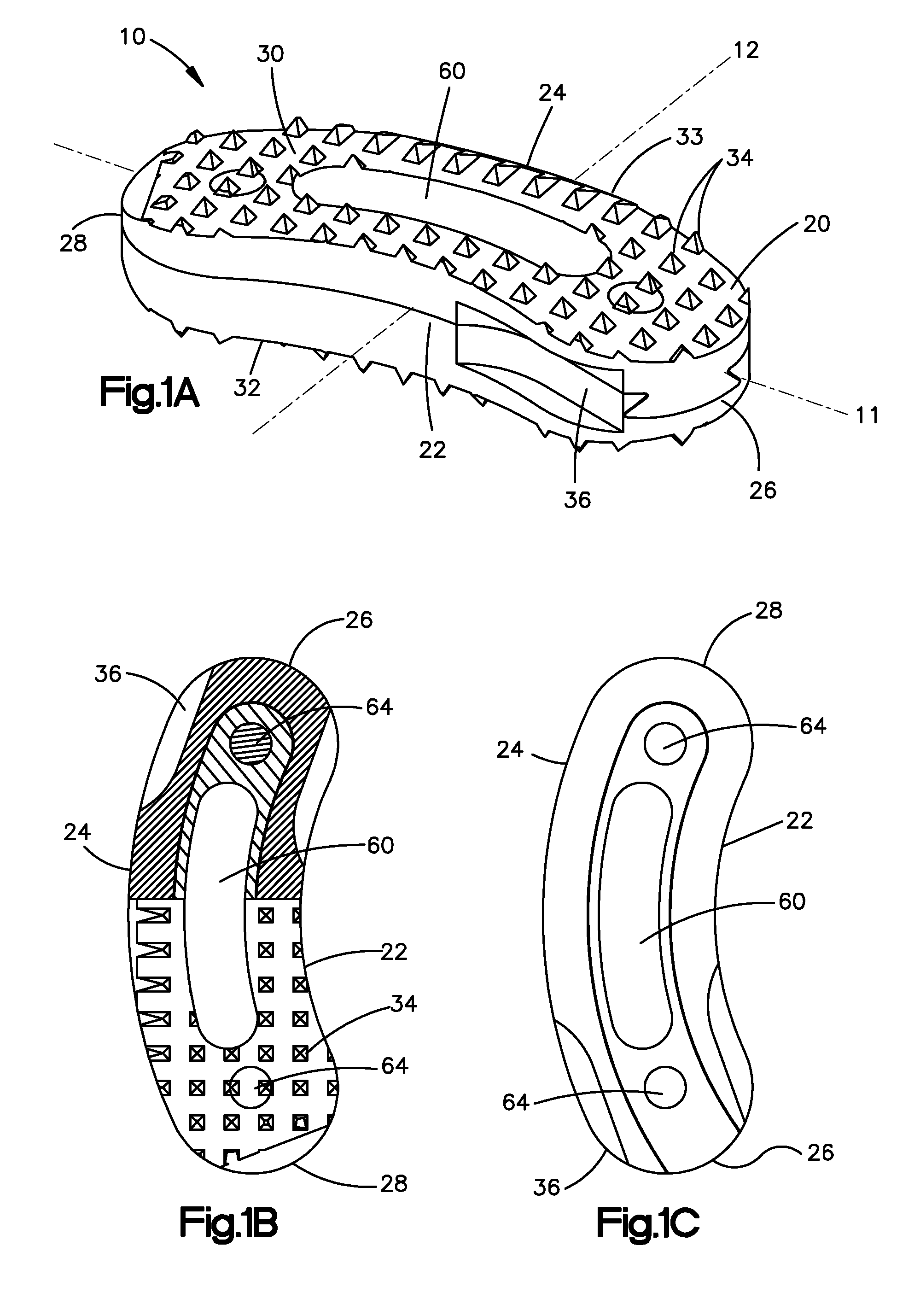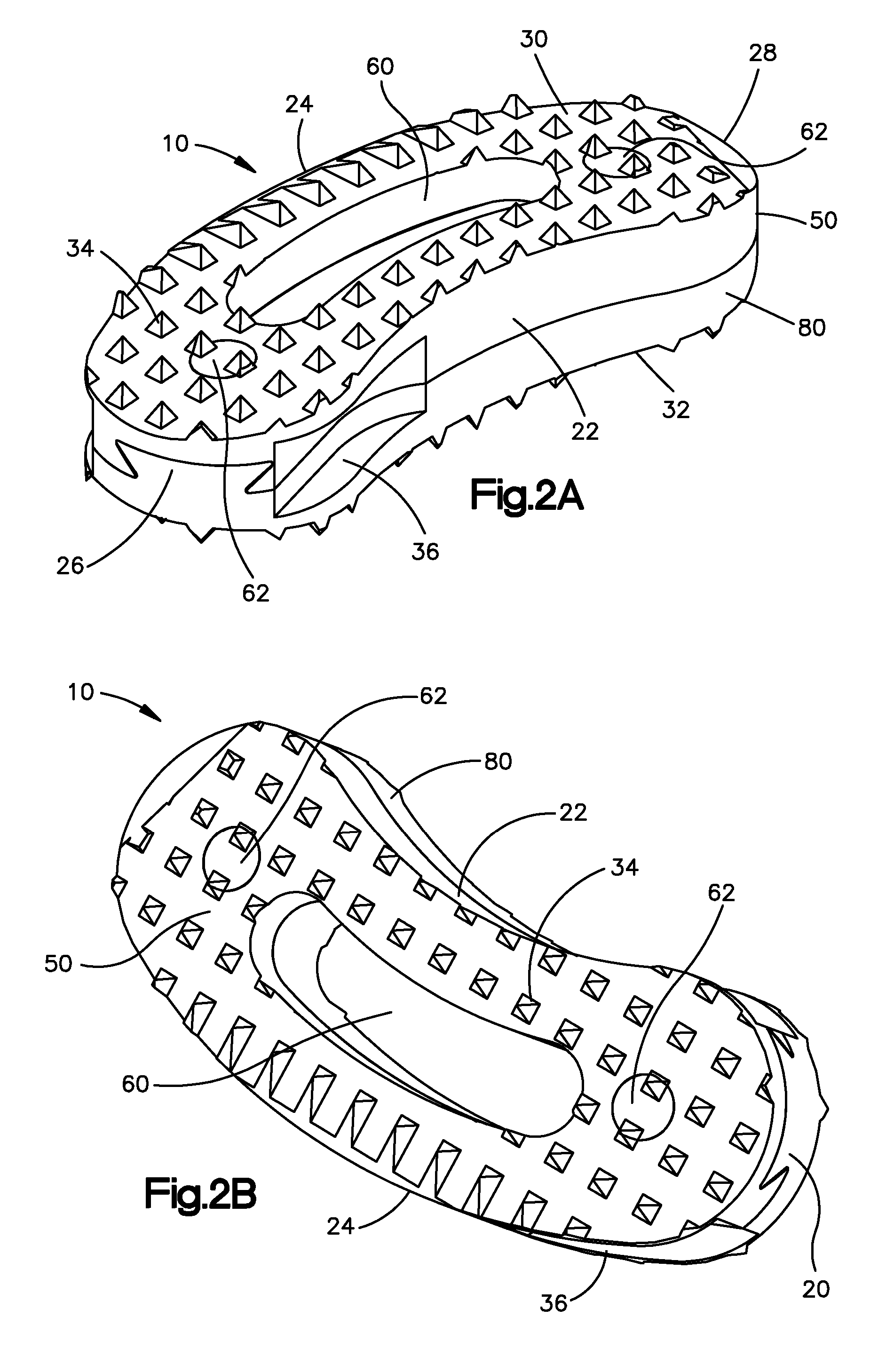Allograft intervertebral implant and method of manufacturing the same
a technology of intervertebral implants and manufacturing methods, which is applied in the field of intervertebral implants, can solve the problems of inability to manufacture implants, limited lateral placement of implants, severe back pain, etc., and achieve the effect of facilitating spinal fusion
- Summary
- Abstract
- Description
- Claims
- Application Information
AI Technical Summary
Benefits of technology
Problems solved by technology
Method used
Image
Examples
Embodiment Construction
[0048] Certain exemplary embodiments of the invention will now be described with reference to the drawings. In general, such embodiments relate to an intervertebral implant for insertion between adjacent vertebral bodies to restore vertebrae spacing wherein the implant is sized and configured for use as an intervertebral spacer in a spinal fusion surgery, wherein an affected disk is removed from between two adjacent vertebrae and replaced with the implant. The implant preferably provides segmental stability and allows for bone to grow in-between the two adjacent vertebrae to bridge the gap created by disk removal. By way of non-limiting example, the intervertebral implant may be made from two or more pieces of allograft bone. The invention may have other applications and uses and should not be limited to the structure or use described and illustrated. As will be described in greater detail below, the intervertebral implant may include two or more pieces of allograft bone joined toge...
PUM
| Property | Measurement | Unit |
|---|---|---|
| Shape | aaaaa | aaaaa |
| Perimeter | aaaaa | aaaaa |
Abstract
Description
Claims
Application Information
 Login to View More
Login to View More - R&D
- Intellectual Property
- Life Sciences
- Materials
- Tech Scout
- Unparalleled Data Quality
- Higher Quality Content
- 60% Fewer Hallucinations
Browse by: Latest US Patents, China's latest patents, Technical Efficacy Thesaurus, Application Domain, Technology Topic, Popular Technical Reports.
© 2025 PatSnap. All rights reserved.Legal|Privacy policy|Modern Slavery Act Transparency Statement|Sitemap|About US| Contact US: help@patsnap.com



